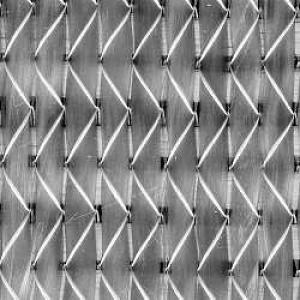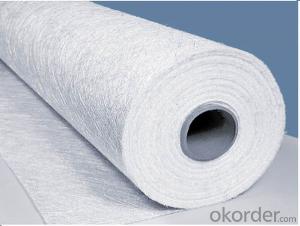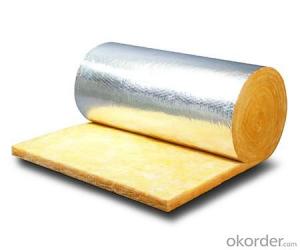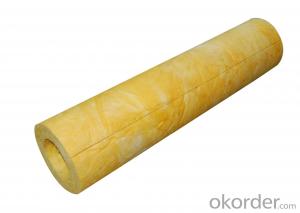Fiberglass Multiaxial Fabric-UD,1050gsm, (90°:600g, chopping:450g)
OKorder Service Pledge
OKorder Financial Service
You Might Also Like
Structure of Fiberglass Multiaxial Fabric-UD Description:
An engineering material, which has many excellent characterstics, such as anti-burning, corrosion resistent, stable structure, heat-isolating, minimum elongated shrinkage, high intensity, etc. This new material product has already covered many domains such as electric appliance, electronic, transportation, chemical engineering, architectural engineering, heat insulation, sound absorption, fire prevention and environmental protection, etc. According to fabric organizational structure and appearance, there are such kind of products: plain weave, twill weave, satin weave, gauze weave.
Main Features of the Fiberglass Multiaxial Fabric-UD:
1)Plain veave,even thickness and low fuzz;
2)High strength in both warp and weft direction;
3)Incombustibility,corrosion resistance and heat resistance;
4)E-Grade Fabric (E-fiberglass Textile Cloth) has excellent electricity insulation property.
Fiberglass Multiaxial Fabric-UD Images:
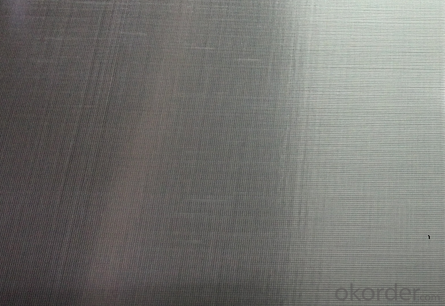
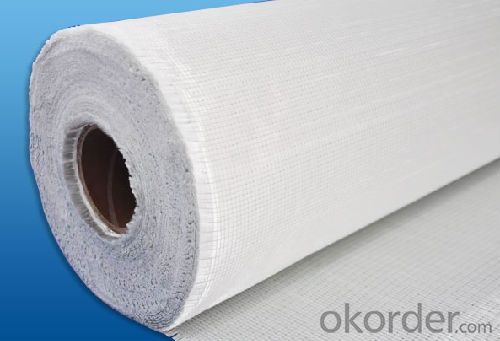
Unidirectional Specification:
Code | Total weight g/m2 | Weight of each layer, g/m2 | Width mm | ||||
0° | 90° | +45° | -45° | Chopping | |||
E-L300 | 350 | 300 | 50 | 200~2600 | |||
E-L350 | 400 | 350 | 50 | 200~2600 | |||
E-L400 | 450 | 400 | 50 | 200~2600 | |||
E-L450 | 500 | 450 | 50 | 200~2600 | |||
E-L500 | 550 | 500 | 50 | 200~2600 | |||
E-L600 | 650 | 600 | 50 | 200~2600 | |||
E-L650 | 700 | 650 | 50 | 200~2600 | |||
E-L900 | 930 | 880 | 50 | 200~2600 | |||
E-L700/200 | 950 | 700 | 50 | 200 | 200~2600 | ||
E-T200 | 200 | 200 | 200~2600 | ||||
E-T450 | 450 | 450 | 200~2600 | ||||
E-T500 | 500 | 500 | 200~2600 | ||||
E-TM300/300 | 600 | 300 | 300 | 200~2600 | |||
E-TM600/450 | 1050 | 600 | 450 | 200~2600 | |||
E-LM750/200 | 950 | 750 | 200 | 200~2600 | |||
FAQ of Chopped strand mat
1. Why Choose us?
CNBM is a stated own company, provide the guarantee for the best quality, best service and safety business.
2. How will we guarantee the quality?
a, ISO 9001-2008 quality control system;
b, Strict and regular quality control in production;
c, Inspeciation when loading into container before shippment;
d, Sample stock for one year for quality tracing and record.
3. What is your MOQ?
Our MOQ is one pallet.
4. Can you provide sample?
Yes, samples are in stock. we can offer free sample for you.
5. Payment terms?
We can accept L/C, T/T etc.
6. Do you offer OEM service?
Yes, we can print customers’ logo on the packaging;
And the size and specification can be produced and design according to your demand.
- Q:What is fiberglass mat tissue made of?
- Fine strands of glass fibers are used to create fiberglass mat tissue, which is a flexible material resembling fabric. The glass fibers are usually produced by melting glass and transforming it into thin filaments. These filaments are then coated with a binding agent to enhance their strength and durability. The woven composition of the fiberglass mat tissue contributes to its ability to reinforce and stabilize different materials and products. This makes it a suitable option for insulation, roofing, and composite materials.
- Q:Can fiberglass mat tissue be used for insulation in commercial buildings?
- Fiberglass mat tissue can indeed be used for insulation in commercial buildings. Fiberglass is a commonly used insulation material due to its excellent thermal performance, durability, and cost-effectiveness. Fiberglass mat tissue is typically made from fine glass fibers that are bonded together using a resin. This mat can be applied to walls, ceilings, and other surfaces to improve the building's energy efficiency by minimizing heat transfer. In commercial buildings, proper insulation is crucial for maintaining a comfortable indoor environment and reducing energy consumption. Fiberglass mat tissue offers several advantages for insulation purposes. It has low thermal conductivity, meaning it can effectively resist heat flow and reduce heat loss or gain through the building envelope. This results in lower energy bills and improved temperature control. Additionally, fiberglass mat tissue is lightweight and easy to install, making it a convenient choice for commercial buildings. It can be easily cut and shaped to fit around obstacles, ensuring a tight seal and preventing air leakage. This helps to further enhance the insulation's effectiveness. Furthermore, fiberglass mat tissue is non-combustible, providing an added safety benefit in commercial buildings where fire protection is crucial. It does not contribute to the spread of flames, and its fire resistance properties can help contain fires and provide valuable escape time in case of emergencies. Overall, fiberglass mat tissue is a suitable and widely used insulation material for commercial buildings. Its thermal performance, ease of installation, and fire resistance make it a reliable choice for achieving energy efficiency and comfort in commercial spaces.
- Q:Can fiberglass mat tissue be used for insulation in chemical storage tanks?
- Yes, fiberglass mat tissue can be used for insulation in chemical storage tanks. It is a commonly used material due to its excellent thermal insulation properties and resistance to corrosion, making it suitable for protecting the tank and its contents from extreme temperatures and chemical reactions.
- Q:Can fiberglass mat tissue be used for thermal insulation?
- Indeed, thermal insulation can be achieved through the utilization of fiberglass mat tissue. Comprised of delicate glass fibers that are skillfully intertwined to produce a robust and supple substance, this material boasts remarkable thermal insulation attributes. Its capacity to resist heat transfer and exhibit low thermal conductivity accounts for its excellent properties in this regard. In order to impede the dissipation or absorption of heat, fiberglass mat tissue can be effectively employed to insulate not only walls but also roofs and other surfaces. Within the construction industry, it is a prevalent practice to implement this material with the aim of advancing energy efficiency and curtailing expenses associated with heating or cooling. Moreover, the fire-resistant, moisture-resistant, and durable nature of fiberglass mat tissue renders it highly suitable for an array of thermal insulation applications.
- Q:What is the thermal resistance of fiberglass mat tissue?
- The thermal resistance of fiberglass mat tissue depends on various factors such as the thickness of the mat, the density of the fibers, and the presence of any additional materials or coatings. Generally, fiberglass has a low thermal resistance, meaning it is a good conductor of heat. However, when used as insulation, the thickness and density of the fiberglass mat can increase its thermal resistance, making it more effective at reducing heat transfer. It is important to note that specific values for thermal resistance can vary depending on the specific product and application, so it is recommended to consult the manufacturer's specifications for accurate information.
- Q:What are the typical mechanical properties of fiberglass mat tissue?
- The typical mechanical properties of fiberglass mat tissue include high strength, excellent tensile and tear resistance, good dimensional stability, and low elongation. Additionally, it has a high modulus of elasticity and is resistant to corrosion, chemicals, and moisture.
- Q:Does fiberglass mat tissue provide good thermal conductivity?
- No, fiberglass mat tissue does not provide good thermal conductivity.
- Q:Can fiberglass mat tissue be used for roofing?
- Roofing can indeed utilize fiberglass mat tissue. This material is frequently employed in the construction industry for a multitude of purposes, including roofing. It is renowned for its robustness, durability, and ability to endure harsh weather conditions. In roofing systems, fiberglass mat tissue often serves as a reinforcing layer, bestowing added strength and stability to the roof. By offering exceptional resistance to water, fire, and external factors, it significantly enhances the roof's overall performance and lifespan. Moreover, fiberglass mat tissue is lightweight and flexible, facilitating its handling and installation on roofs of varying shapes and sizes. Ultimately, due to its exceptional properties and performance, fiberglass mat tissue proves to be a fitting choice for roofing applications.
- Q:Can fiberglass mat tissue be used for insulation in power generation facilities?
- Yes, fiberglass mat tissue can be used for insulation in power generation facilities. Fiberglass mat tissue is a versatile material that is commonly used for insulation purposes due to its excellent thermal and electrical insulation properties. It is resistant to high temperatures and can effectively trap and prevent the transfer of heat, making it suitable for use in power generation facilities where heat management is crucial. Additionally, fiberglass mat tissue is lightweight, easy to install, and offers high durability and longevity, making it a cost-effective choice for insulation in power generation facilities.
- Q:Can fiberglass mat tissue be used for pipe wrapping?
- Yes, fiberglass mat tissue can be used for pipe wrapping. Fiberglass mat tissue is a lightweight and flexible material that is commonly used for reinforcing and protecting various structures, including pipes. It is designed to provide strength and durability to the pipes, making them more resistant to damage and corrosion. The fiberglass mat tissue can be easily wrapped around the pipe, creating a protective layer that helps to prevent leaks and extend the lifespan of the pipe. Additionally, fiberglass mat tissue is also known for its excellent insulation properties, which can help to maintain the temperature of the contents flowing through the pipe. Overall, fiberglass mat tissue is a suitable material for pipe wrapping and is commonly used in various industries for this purpose.
1. Manufacturer Overview |
|
|---|---|
| Location | |
| Year Established | |
| Annual Output Value | |
| Main Markets | |
| Company Certifications | |
2. Manufacturer Certificates |
|
|---|---|
| a) Certification Name | |
| Range | |
| Reference | |
| Validity Period | |
3. Manufacturer Capability |
|
|---|---|
| a)Trade Capacity | |
| Nearest Port | |
| Export Percentage | |
| No.of Employees in Trade Department | |
| Language Spoken: | |
| b)Factory Information | |
| Factory Size: | |
| No. of Production Lines | |
| Contract Manufacturing | |
| Product Price Range | |
Send your message to us
Fiberglass Multiaxial Fabric-UD,1050gsm, (90°:600g, chopping:450g)
OKorder Service Pledge
OKorder Financial Service
Similar products
New products
Hot products
Hot Searches
Related keywords


